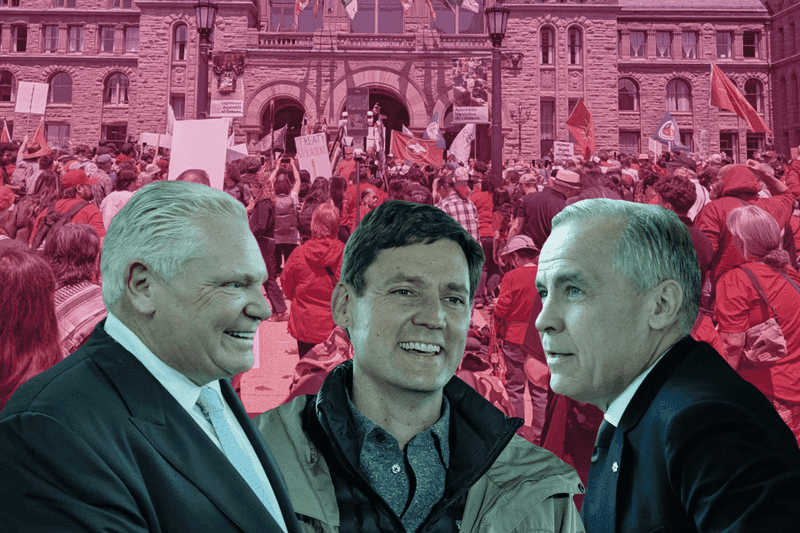
On May 1, 2024, it will be 50 years since the United Nations approved, at its Sixth Special Session, a resolution (3201) containing the Declaration on the Establishment of a New International Economic Order (NIEO). This Declaration contains 20 headings listing the principles on which its implementation should be based. Separately, the Programme of Action on the Establishment of a NIEO was agreed to on the same day.
In the years following the documents’ approval, the various regional and political groups into which the international community is segmented have made different interpretations of that milestone, have pondered its implementation, or have taken initiatives that are diametrically opposed to its original purposes.
Several academic texts have reviewed the background to the NIEO and the stages of crisis that preceded it, and have defined historical cycles in its achievement. Most of these analyses coincide in recognizing the impact of the political decolonization process of the 1960s and 1970s, which led to the integration of dozens of new sovereign countries into the multilateral system.
Since 1974, the international order (or rather, disorder) has continued to change constantly, although the new orders have not been built on the basis of agreements between parties. Rather, the main economic powers have used military force to subdue on many occasions those governments that have tried to change the rules of the game; the less developed countries have formed regional or thematic groups to achieve survival; the socialist model disappeared; neoliberalism spread throughout the world with its devastating effects both for the promoters and the believers in the formula; and the so-called "war on terrorism" spread over 20 years and changed the geography of the Middle East, and the world's finances.
New powers have emerged –– which are increasingly approaching the level of development of the so-called first world –– some of them contrary to the Marxist logic of original accumulation, because they have been victims of colonialism and other forms of exploitation. These powers are already challenging the first economies in areas where they seemed impregnable until very recently: efficiency, productivity, artificial intelligence, financial services etc.
These powers aside, instead of narrowing, the economic gaps that have always existed between nations have widened and have extended to other sectors of international life, such as: education, health, the environment, information and knowledge.
These issues have not been comprehensively addressed at the multilateral level, and on many occasions, documents have been approved without in-depth political debate. Some more recent milestones include:
- The adoption of resolutions on an annual and biannual basis by the United Nations General Assembly, beginning in 2008.
- "The Future We Want", adopted at the United Nations Conference on Sustainable Development or Rio +20 (2012).
- “Small Island Developing States accelerated modalities of action (Samoa pathway)”, adopted at the Third International Conference on Small Island Developing States (2014).
- The "Addis Ababa Action Agenda", adopted at the Third International Conference on Financing for Development (2015).
- The approval of the 2030 Agenda for Sustainable Development (2015).
The emergence of the COVID-19 pandemic, the rise of a new right wing to the political scene in the USA and Europe, NATO's attempts to offer a military solution to any conflict, plus the changes generated within nations such as Russia, China, South Africa, India and Turkey, among others, have provoked a new reflection on the existing "order" and the need, for some, to conceptually define a new stage
Among the features of this new era is the indisputable fact that nations such as the United States, France, the United Kingdom, Spain and other former metropolises are facing so many difficulties in their economic engineering, that they are not even proposing new models or attempts at global solutions to the problems we all suffer from. Governments and political forces of countries that once looked to those capitals for support, cooperation, or solidarity, now know that they will not get such a response, and are looking in a different direction.

Development
Cuba, since its status as a founding member of the UN, but especially since the triumph of its Revolution in 1959, has made very concrete contributions not only to the debate, but also to the attempt to implement the precepts of the NIEO.
Since then, successive Cuban governments have based their foreign policy, first of all, on associating the possibility of establishing this proposed new order with the need for essential political premises, such as respect for sovereignty, equality among states, and self-determination.
Long before the events of 1974, the conceptual contributions of the historic leader of the Cuban Revolution, Fidel Castro, to the new order that was to emerge, were outstanding.
In his memorable speech to the United Nations General Assembly in September 1960, Fidel drew a parallel between the problems faced at the time by the Cuban people and those existing in the underdeveloped world of that era, when he read to the plenary the text of the First Havana Declaration.
This was his way of saying that, if the national imbalances in each country were resolved, this could have an impact at the global level, and would perhaps open new paths for humanity. Fidel referred to:
“The right of peasants to have lands; the right of workers to enjoy the results of their labor; the right of children to education; the right of sick persons to medical and hospital care; the right of youths to work; the right of students to free, experimental and scientific education; the right of Blacks and Indians to the ´full dignity of man;´ the right of women to civil, social and political equality; the right of elderly persons to secure old age; the right of intellectuals, artists and scientists to strive, through their works, for a better world; the right of States to nationalize imperialist monopolies, thus recovering national wealth and resources; the right of countries to free trade with all the peoples of the world; the right of nations to their full sovereignty; the right of people to turn their army fortresses into schools and to arm their workers.”1
But Cuba did not stop at theoretical definitions. At a very early date, before the revolutionary government had even begun to try to resolve national imbalances, projects of cooperation with de-colonizing nations were established, the first of these was carried out in Algeria2 in 1960.
Cuba tried to establish a new order in its own international relations, leading the country to change the rules of the game in its relationship with the United States; nationalize foreign properties; redistribute national wealth; and finance social programs that offered equal opportunities for its entire population. And perhaps this has been Cuba's greatest contribution to the desired new order: to demonstrate that, in a very underdeveloped country, the political will of its government could succeed in changing the state of affairs, confronting even the world’s leading military and economic power.
Just after that 1974 resolution on the NIEO, three events took place in Cuba, which also explain this country's commitment to a new economic and political world order.
In late 1975, the first Cuban internationalists left for the newly created People's Republic of Angola to safeguard the early days of its independence. Cuba not only helped the Angolans to stand their ground against the onslaught from the former Zaire and apartheid South Africa regimes (both supported by the US), but also contributed to the liberation of Namibia and the end of the its hated regime of racial segregation.
These results stimulated changes throughout the region of Southwest Africa, where new nations now had the opportunity to try and build a future without external intervention. In these African countries, and in many others, Cuba sent doctors, teachers, scientists and many others to lend their support.
Secondly, in 1976, the first Cuban Constitution of the revolutionary era was approved by popular referendum. Article 12, as part of the principles of its foreign policy:
“a) ratifies its aspiration for a worthy, true, and valid peace for all States, large and small, weak and powerful, based on the respect for the independence and sovereignty of peoples and the right to self-determination; b) bases its international relations on the principles of equality of rights, free determination of peoples, territorial integrity, independence of States, international cooperation for mutual and equitable benefit and interest, peaceful settlement of controversies, marked by equality and respect, and the other principles proclaimed in the United Nations Charter and in other international treaties to which Cuba is a party; c) reaffirms its desire for integration and cooperation with the nations of Latin America and the Caribbean, whose common identity and historic need for advancing together toward political and economic integration to achieve true independence would enable us to reach the position that corresponds to us in the world; ch) advocates the unity of all the countries of the Third World against the imperialist and neocolonialist policy seeking the limitation or subordination of the sovereignty of our peoples, and the aggravation of the economic conditions of exploitation and oppression in the underdeveloped nations; d) condemns imperialism, the promoter and supporter of all fascist, colonialist, neocolonialist and racist manifestations, as the principal force of aggression and war and the enemy of the peoples; e) repudiates the direct or indirect intervention in the internal or external affairs of any State and, hence, armed aggression and economic blockade, as well as any other type of economic or political coercion, physical violence against persons residing in other countries, or other types of interference in, and threat to, the integrity of the States and the political, economic, and cultural components of the nations; f) rejects the violation of the irrevocable and sovereign right of any State to regulate the use and benefits of telecommunications in its territory, according to the universal practice and the international conventions that it has signed; g) categorizes the war of aggression and conquest as an international crime, recognizes the legitimacy of struggles for national liberation, as well as armed resistance to aggression, and considers its internationalist obligation to support the one attacked and [stand] with the peoples who fight for their liberation and self-determination; h) bases its relations with the countries building socialism on fraternal friendship, cooperation, and mutual aid, founded upon the common objectives of the construction of the new society; i) maintains relations of friendship with the countries which, possessing a different political, social and economic regime, respect its sovereignty, observe the rules of coexistence among the States, adhere to the principles of mutual advantage, and adopt a reciprocal attitude with our country.”3
In 1976 Havana was chosen to host the VI Summit Conference of the Non-Aligned Movement (NAM), which would take place in September 1979. A few days after the summit, when reporting to the UN General Assembly on the results of the event, Fidel said:
“We are 95 countries, from every continent, and we represent the immense majority of humankind. We are united by the determination to defend collaboration among our countries, free national and social development, sovereignty, security, equality and free determination. We are associated in the endeavor to change the current system of international relations which are based on injustice, inequality and oppression. We act in international politics as an independent global factor.”4
Many observers may not have realized at the time the value of this last sentence, which was reinforced in the actions of other majority groups such as the G77, and in international campaigns, such as the one that sought to build consensus for the non-payment of the foreign debt.
A mere 11 years after that NAM Summit, when the disintegration of the so-called European socialist camp took place, Cuba saw 85% of its foreign trade disappear and registered a 35% drop in its Gross Domestic Product in 24 months. Once again, Cuban society made a singular and unique contribution to those who believed in the possibility of a new order, as it now resisted, on its own, the tightening of the US blockade, through the so-called Torricelli Act (1992) and the Helms Burton Act (1996).
Cuba emerged from that crisis with renewed capabilities in its economic model and, moreover, did not abandon its capacity to share its material and human assets with others.
This resistance put to rest the more than 30-year-old argument that the Cuban socialist project existed only because of the backing of a group of countries with which it traded on the basis of differentiated prices, and from which it received advantageous investments.
The decade of the 1990s had not yet concluded when one of the most ambitious Cuban programs of international collaboration was established, which included the training of physicians from more than 100 countries, including the United States, in Cuba and abroad.
With well-deserved prestige, Cuba played a leading role in the articulation of a new Latin American and Caribbean political technology, in its commitment to the Community of Caribbean States (CARICOM) and the Association of Caribbean States (ACS). It was also one of the most active countries in the efforts that would eventually lead to the creation of the Bolivarian Alliance for the Americas (ALBA) and the Community of Latin American and Caribbean States (CELAC). All these regional groups, taken as a whole, contributed at the time to demonstrating the inability of the U.S. pan-American system embodied in the Organization of American States (OAS), i.e. the old order, to confront and resolve the most pressing problems of the Western Hemisphere.
Perhaps the singular collectively constructed fact that most clearly demonstrates the above statement was the defeat suffered by the Free Trade Area of the Americas project during the Summit of the Americas held in Argentina in 2005. Cuba was absent once again, but agreement between countries such as Venezuela, Bolivia, Brazil, Uruguay, and Argentina, among others, made such an outcome possible.
Cuba hosted the XIV Summit Conference of Non-Aligned Countries in 2006, during which Army General Raúl Castro, addressing the plenary, said:
“On the sound foundations of our historic victories in the struggle for decolonization and the removal of apartheid, and with the rich experience of our efforts in favor of a New International Economic Order and of peace, disarmament, and the true exercise of the right to development, the Non-Aligned Movement shall now wage heroic battles against unilateralism, double standards and the impunity of the powerful; for a more just and equitable international order to tackle neoliberalism, plundering, and pillage; for the survival of the human species instead of the irrational consumerism of the wealthy nations.”
He went on to express: “In the present circumstances, non-alignment necessarily implies the defense of international law on the basis of the Bandung principles; the unrestricted exercise and respect for the sovereignty and sovereign equality of States; the defense of peace and the active opposition to war and threats; the indispensable democratization of international institutions, in particular, the United Nations and its Security Council; the defense of our values and of the plurality necessary in this diverse world, in which each peoples must have the right to choose the political, economic and social system they consider most appropriate to their national interests, and to preserve and develop their own culture"5.
In 2008, the world once again went through an international economic crisis, in the midst of a supposed war on terror led by the United States, which changed the geopolitics of North Africa and the Middle East, provoked unprecedented migratory flows, and signified the first major fracture in the scheme of neoliberal domination and the supposed end of ideologies promoted 20 years earlier.
In this context, Cuba took the lead in retaking the banner of the NIEO's claims within the framework of the G77. The result of the subsequent negotiation process was endorsed in the approval, with 123 votes, of UN resolution 63/224, entitled “Towards a New International Economic Order.” The United States was the only country to oppose the two operative paragraphs of the document, which simply spoke of "reaffirming the need to continue working" for the establishment of such an order, and "to examine in depth the international economic situation and its repercussions", requesting the Secretary General of the UN to present a report with its conclusions. The group of abstentions comprised 52 countries, primarily members and aspiring members of the European Union.
Since then, Cuba has maintained its leadership on the subject, first on an annual basis and then on a biannual basis. The last of the resolutions approved in New York with the purpose of establishing the longed-for NIEO was 75/225 of 2020, which constitutes a more elaborate text, recognizing the evolution of the subject, mentioning other international organizations responsible for development, and emphasizing the urgency of the issue.
Once again, 123 nations supported the proposal, and only 4 abstained, but 47, including the United States, went on to oppose it. This fact alone reflects, beyond what may have been raised by each delegation during the negotiating process, a distancing of an important group of countries (mostly the European Union) from a possible compromise.
This last exercise, however, took place in the midst of the conditions imposed by the COVID-19 pandemic, which once again shook the foundations of the international economy, caused major political changes in several regions, and had (and continues to have) an enormous human cost. The pandemic showed, as few recent global events have, that serious international problems can only be solved through cooperation, and that the large capitalist transnationals will profit from any issue that brings them profit, be it wars or diseases.
In that context, and even in the midst of an unprecedented tightening of the US blockade, Cuba rose with its proposal to guarantee universal health care as a human right.
This apparently simple approach, but reflected in working protocols, specialized institutions, and the commitment from the State as the main entity, was what allowed the island to effectively protect its population, have one of the lowest mortality rates in the world, and create five vaccines of its own that protected almost the entire population.
This effort, which was in itself epic, did not remain within national borders, as the country sent 58 medical brigades to 42 countries and colonial territories, including European nations, to help in the fight against the scourge.
Once again, without waiting for universal debates which often fail to have a concrete impact, Cuba went ahead and changed the order of things towards solidarity and cooperation.
In terms of contributions to the new order, there is a political effort in which Cuba has participated for several years, which perhaps does not have the international magnitude as the fight against COVID, but which is once again taking effect as a result of the changes taking place in South America and has great regional significance, with direct repercussions for the peaceful coexistence and development of neighboring nations.
The peace negotiations in Colombia (government of President Juan Manuel Santos, FARC-EP), which lasted from September 4, 2012 to August 24, 2016, were an arduous diplomatic and political process in which Cuba was not only the host (with the associated expenses), but also guarantor, together with the Kingdom of Norway.
The disregard of the agreements by the government of Iván Duque (2018-2022), together with the Monroist interests that rose to power in Washington under Donald Trump (2017-2021), had the direct purpose of destabilizing Venezuela and justifying the US’ decision to again include Cuba in the list of countries that supposedly sponsor terrorism, with the sole purpose of making any future bilateral rapproachement with Havana more difficult.
A new political change in Bogotá, along with the survival of the Bolivarian Revolution and the continuity of the Cuban resistance allow, as of 2022, for the cycle of peace negotiations to be completed (or not) with the ELN guerrilla organization. Suffice it to say that, in Colombia, under the argument of the fight against drug trafficking and guerrillas, there is the largest US military presence in the western hemisphere outside its territory. The country is the only strategic extra-continental partner of NATO, that is, of the old order.
Again, since Cuba’s action in terms of changing the state of affairs in a conflict with national, bilateral and regional implications, there are more reasons to try to aspire to a new international order.
Conclusions:
Cuba’s efforts to achieve a New International Order, and. specifically, a New International Economic Order, has been multidimensional and multifaceted. Its international projection, in this sense, has been possible thanks only to the internal changes that took place in the country since 1959, since the yearnings of freedom, equal opportunities, human solidarity, wealth redistribution, and universal access to social services became a reality for Cuban citizens.
Cuba’s attempts to change that Order coincide in time with the triumph of the Revolution itself, and did not wait for the maturity or solidification of the project. Cuba’s dutyvocation to work for the “balance of the world” is rooted in Marti’s thought of preventing the imperialist projection of The United States over Latin America with the pro-independence action.
Today, there are new dangers of domination, which complement those already known, and have to do with the domination of information, of states of opinion, and the penetration of the culture of entire peoples. In these fields, finance and technology are once again in the hands of a few countries and companies, which obtain the greatest benefits in terms of gathered information and political influence.
In other words, new imbalances have been added to the old ones, while the latter have not yet been corrected, and we are still far from an international articulation that would allow us to face them.
New energy, environmental and health crises which are more global than the economic crises, present us with the challenge of trying to address them through cooperation, or face the possibility of the extinction of humanity as we know it today.
The road begins in each of our localities, regions, provinces, territories, nations and countries. If a new order is not created from there, it will be very difficult for it to be projected on an international scale.
Fidel Castro comes from the future to tell us once again: “Let the philosophy of dispossession disappear and the philosophy of war will have disappeared! Let the colonies disappear, let the exploitation of countries by monopolies disappear, and then humanity will have reached a true stage of progress!”
He said this in 1960. Until it happens, we will continue to live in “la prehistoria”.

Dr. C José Ramón Cabañas Rodríguez is Director of the International Policy Research Center (CIPI) in Havana, Cuba.





